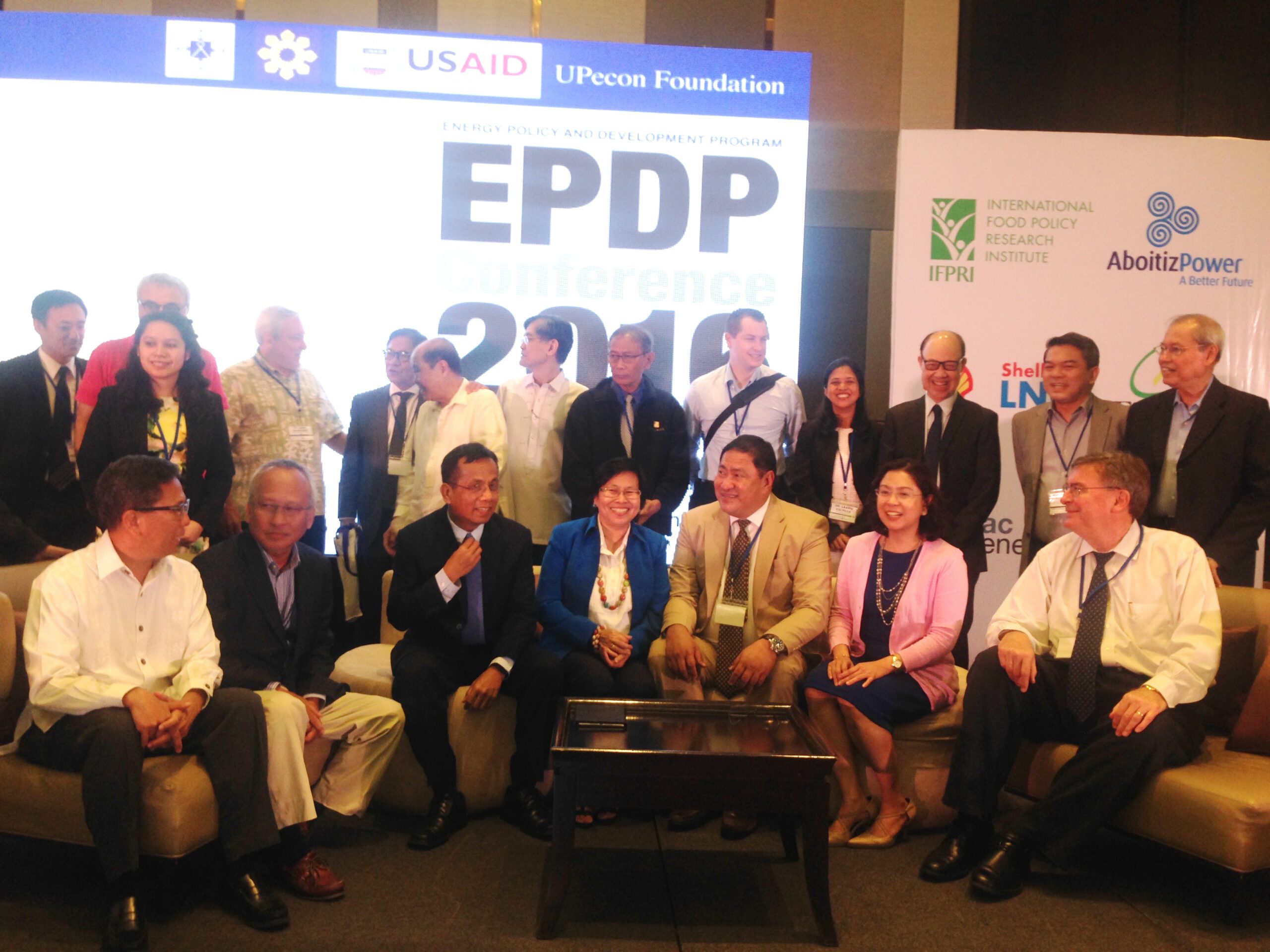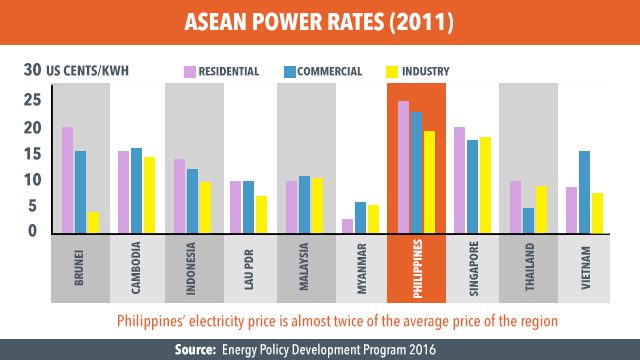SUMMARY
This is AI generated summarization, which may have errors. For context, always refer to the full article.

MANILA, Philippines — If the Philippine government does not hasten the implementation of policies that will solve the problem of costly, low quality power supply, the country might not realize an inclusive, job-producing 7% economic growth in the next 5 years.
This was the statement of National Economic and Development Authority (NEDA) Director-General Arsenio M. Balisacan at the Energy Policy and Development Program (EPDP) 2016 conference last week. (READ: 6.9% Philippine GDP growth in Q4 unlikely – economists)
“Energy is so crucial to achieve 7% inclusive, job-creating economic growth in the next 5 years. We can sustain this growth if we do reforms,” Balisacan said during the conference.

Citing a 2011 report on Association of the Southeast Asian Nations (ASEAN) energy rates, the NEDA chief said the Philippines’ electricity price is almost twice the average price in the region.
“This is one of the reasons we are having difficulties in attracting investments and investors,” Balisacan said during the EPDP 2016 conference.
Latest Bangko Sentral ng Pilipinas data showed that in terms of net foreign direct investment (FDI) inflows, the Philippines continued to lag behind its comparable ASEAN neighbors.
Net FDI inflows inched up 1.4% to $451 million in October 2015, from $445 million recorded in the same period a year ago.
“We have to make significant investments to catch up with our neighbors. We have very high cost of energy compared to our neighbors; and it’s even rising whereas those of our neighbors, it’s falling,” Balisacan said.
The Philippine socioeconomic planning chief said the country needs to deepen policy and institutional reforms to improve the business climate.
“This should be very pronounced in the next Philippine Development Plan. Infrastructure is a major problem in relation to our neighbors. It is not enough that we are improving. We have to improve much faster than what we are seeing in our neighbors to join the ranks,” Balisacan said.
“If we address these fundamental constraints, our growth including energy will sustain a growth of 7% for the next 5 years….In one generation. you can join the ranks of rich countries,” Balisacan said.
He added that the Philippines also needs to widen access to energy to boost the country’s economic performance.
“Access to energy for all is a strategy for inclusive growth – not just quantity but also quality and affordability of energy,” Balisacan said.
According to Balisacan, the lack of coordination among the energy department, National Grid Corporation of the Philippines, and Energy Regulatory Commission should be addressed to be able to craft plans and policies for the power industry.
“The DOE should have an overall development plan….You have new power plants, but you don’t have transmission lines. Where is coordination there?” Balisacan said during the conference.
In a December interview, Balisacan said the Philippine economy can grow as much as 8% and move up as an upper middle income country in the next 6 years if it addresses infrastructure bottlenecks, and works on improving the business climate and human capital.
Otherwise, the Philippines’ gross domestic product (GDP) would only continue to grow at 6%, he added.
The third quarter GDP growth of 6% is an improvement from 5.8% in the previous quarter, and from 5.5% in the same quarter in 2014.
The government has targeted a 7%-8% full-year growth for 2015, but it is skeptical if it would reach the projection, saying “a 6% for 2015 is much likely.”
The Philippines is among the lower middle income countries, data from the World Bank showed. – Rappler.com
Add a comment
How does this make you feel?
There are no comments yet. Add your comment to start the conversation.